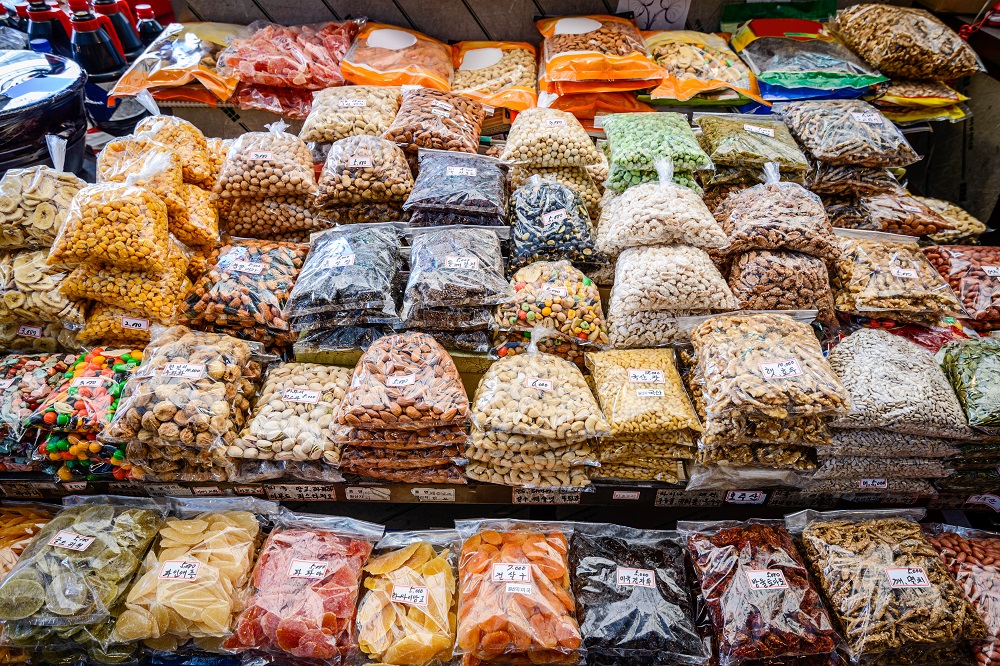Recycling plays such an important part in managing our waste, but it's easy to be confused about what we're allowed to recycle.
Some folks have 'co-mingled' recycling bins (where all recyclable materials go into one bin) while others have a three or four-bin system.
Understanding our waste systems is important because contamination of recycling bins can result in facilities being unable to recycle batches of waste, resulting in large amounts of recyclable material going to landfill (to get the right info for your home, check out your local council's website).
Here we explore the good, the bad and the lesser-knowns of recycling in Australia to help you navigate those bins like a boss!
Recycling: The bad
These things can often be confused as being worthy of your recycling bin but they're not – they're the naughties sent to confuse us that should actually go into your general waste, which is why it's best to try and avoid consuming these completely. These single-use items are more trouble than they're worth, causing mass, long-term impact for our planet and our future generations.
Cling film. Try beeswax wraps instead.
Bin liners. Go liner-free, use paper bags, or biodegradable bags.
Plastic bags. Reusable grocery bags are where it's at!
Polystyrene foam. Choose takeaway places with biodegradable packaging, or take your food storage containers.
Coffee cups. If you live in Brisbane or the ACT, these can be recycled; but wherever you live, it's always best to opt for reusable coffee cups when you can.
The spongy bits at the back of meat trays (eww… try your local butcher instead).
Soft plastics are the #1 form of contamination in recycling plants because they can damage machines inside sorting facilities and even cause some to break down, preventing other materials from being recycled. Even with the volume of chic reusable solutions on the market, soft plastics can be difficult to avoid completely. When you find yourself with these, see if your local supermarket has teamed up with REDcycle, offering you a way to recycle soft plastics the next time you go shopping. Check out REDcycle's full list of recyclable soft plastic.

Recycling: the good
Here's a list of recycling heroes:
Cans can! Aluminium is made from an ore called bauxite, which is mined from the earth. Bauxite is converted into alumina, a fine white powder. This powder is then smelted at over 700°C to become aluminium. The process is expensive and uses lots of resources. For every aluminium can you recycle, you save enough energy to power a TV for 3 hours – boom!
Glass. Most glass bottles and jars are okay. Empty them, rinse, remove the lids, and try not to break them. Some types of glass typically can't be recycled at your local facility, including window or windscreen glass, drinking glasses, mirrors, oven-proof or heat-treated glass (e.g. Corning Ware, Pyrex or Vision Ware), light globes, laboratory, and medical glass.
Paper and cardboard. Egg cartons, books, magazines, brochures, wrapping paper, cardboard boxes – the list goes on. Put it all in!
Envelopes, film and all! Envelopes, including window-faced envelopes, are recyclable. Even though they have a clear film window, they go in the paper and cardboard bin – there's no need to remove the film window. Easy peasy.
Recycling: The lesser-known
These are things that need a quick double-check (until, of course, you get so smooth you're recycling like a ninja!).
Bottle tops. Steel and aluminium bottle tops can be recycled but are too small to go through the machines on their own. The trick is to place them in a can of the same metal type: steel bottle tops in steel cans, and aluminium bottle tops in aluminium cans. (Hint: steel is magnetic and so will stick to a magnet, aluminium will not). Squeeze the top of the can so the lids won't fall out and pop it in the appropriate recycling bin. In some councils, plastic bottle tops bigger than a business card can go into the recycling bin. Best to check with your local council on this one.
Foody, oily mess. Food contamination can make recycling really tricky. Some councils will advise to keep pizza boxes out of recycling bins for this reason.
Take away food containers. Some take away containers are recyclable; however, many are not. Contact your local council to check if they accept these containers as part of their recycling collection.
An extra step. These things are recyclable but just not in your bin at home. They need an extra trip to your local tip or a dedicated recycling drop off point to find their new life.
- Light globes
- Batteries
- Printer cartridges
- Electronic devices (computers, phones etc)
- Plastic bags – take them to your local supermarket bin or REDCycle drop off point
Why bother with recycling?
20 million tonnes of garbage makes its way to Australian landfills each year. And landfill is bad. Real bad.
"Landfills can impact on air, water and land quality. Landfill gas, mainly methane, is produced by decomposing organic waste which contributes to global warming when released to the air. Water moving from, or through, landfill waste forms leachate which has the potential to contaminate nearby surface and ground water. Potentially hazardous substances can also migrate through the surrounding soil via leachate or landfill gas."
- Australian Bureau of Statistics, 1370.0 Measures of Australia's progress, 2010, Waste
Recycling is a big improvement on filling up our landfill sites with materials that could and should be given a new life. But it's not the whole story. The best way to manage your waste is to buy less in the first place. We know that while every screen, billboard, and speaker is screaming at us to buy more, we can still choose to buy less. As Vivienne Westwood so eloquently put it:
"Buy less. Choose well. Make it last. Quality, not quantity."
Everything we can do to reduce what goes into landfill supports our next generation and our planet.
Charlie Thompson is the Cofounder and CEO of The Clean Collective, a toxin-free and waste-less shop and community. The Clean Collective was founded on the belief that even the tiniest change, when made together, can result in a huge, champagne-popping difference to the world. You can join them on Facebook and Instagram for chemical-free and zero-waste tips, tricks and solutions.
[This article originally appeared on The Clean Collective]
Read this next: Plastic Straw Bans Won't Solve The Pollution Crisis, But It's A Start
WE ARE WOMEN AND GIRLS FROM EVERY CORNER OF THE PLANET BUILDING A LIFESTYLE REVOLUTION TO FIGHT THE CLIMATE CRISIS, WILL YOU JOIN THE MOVEMENT?

